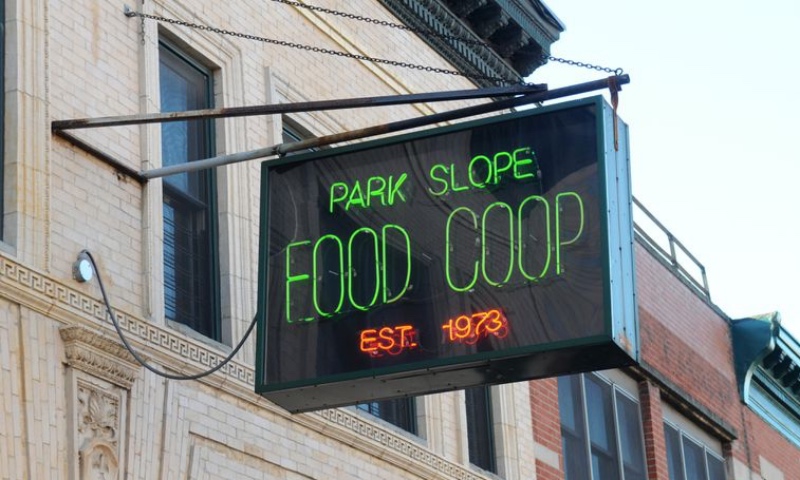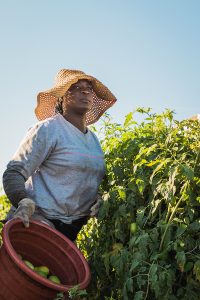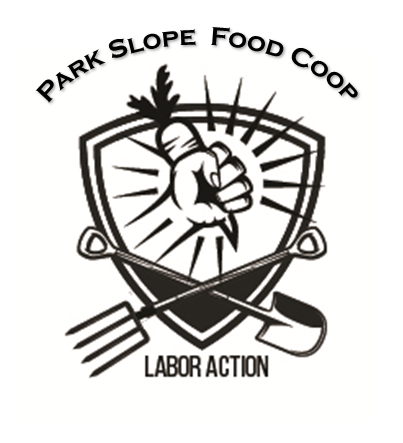
Park Slope Food Coop: “As our Mission Statement says, ‘We seek to avoid products that depend on the exploitation of others.’ Ethical production and sourcing are among our core values, and our membership has voted overwhelmingly to support the FFP – a first in the nation for a local retailer. The Fair Food Program embodies those values, ensuring that the food we buy each day to feed our families is harvested with dignity and respect for the women and men laboring in the fields.”
What: The launch of a new partnership for farmworker human rights by Park Slope Food Coop and the Coalition of Immokalee Workers
When: November 8th, 4:30 PM
Where: Park Slope Food Coop, 782 Union St, Brooklyn, NY, 2nd floor meeting room (next to Member Office)
Background: For generations, the vast majority of agricultural production in this country has taken place in a context of the rampant and unchecked violation of farmworkers’ fundamental human rights. From forced labor to sexual violence, wage theft, discrimination, humiliation, and extreme poverty, farmworkers have faced the very worst working conditions this country has to offer with little or no power to remedy those conditions.

That all started to change in the fields of Florida in 2011, when the Fair Food Program (FFP) broke ground in the state’s industrial-scale tomato industry, in a region dubbed “ground zero for modern-day slavery” by federal prosecutors for the many successful slavery prosecutions that emerged from the fields in the years leading up to the Fair Food Program’s launch. The FFP was a pioneering new model for the monitoring and enforcement of farmworkers’ human rights that harnessed the purchasing power of some of the country’s largest, most powerful retail food buyers to demand fundamental, verifiable reforms in farm labor conditions. The program has resulted in the elimination of forced labor and sexual assault and an unprecedented reduction in other more common forms of exploitation and has been called “one of the great human rights success stories of our day” in the pages of The Washington Post.
But in the eight years since the launch of the FFP, despite the expressed interest of smaller, local food retailers to do their part and engage with the Program, these buyers had no avenue to support the change underway on Fair Food farms. That was because the very engine that drove the program’s unprecedented success — the market consequences for violations of the FFP’s standards established in the CIW’s agreements with some of the world’s largest purchasers of produce — relied on the participating buyers’ overwhelming purchasing power to provide the necessary incentive for growers to remain in compliance with the Fair Food Program Code of Conduct. So for eight years, small, local grocers could not participate in a model founded on the market power of multi-billion dollar retail food corporations.
But today, Friday, November 8th, 2019, that is all about to change, as New York City’s fabled Park Slope Food Coop – one of the country’s largest, longest-running consumer coops – is launching a new partnership with the CIW in support of the Fair Food Program. The partnership will combine financial support for the monitoring and enforcement body of the Fair Food Program (the Fair Food Standards Council) through the contribution of a portion of the proceeds from the sale of FFP produce with a commitment to educate coop members about the importance of human rights protections for farmworkers though in-store promotions and educational events. And, perhaps most importantly, this exciting new partnership will open a vital new avenue for countless other similarly situated consumer coops, local retailers, restaurants and small restaurant chains to participate in the Presidential-medal winning human rights program.
The launch of the new initiative will be announced at an event this afternoon at the Park Slope Food Coop, and the CIW will be there, together with New York City-based allies. We’ll close today’s post with the press release for today’s event, but check back soon for a report from the launch, and for more on this significant milestone in the evolution of the groundbreaking Fair Food Program:
FOR IMMEDIATE RELEASE
Nely Rodriguez
Coalition of Immokalee Workers
yaissy@sfalliance.org / 239-692-1482Eric Frumin
Park Slope Food Coop Labor Committee
erfrumin@gmail.com / 917-209-3002
Park Slope Food Coop, Coalition of Immokalee Workers (CIW) join forces in unprecedented effort to support farmworkers’ human rights through award-winning Fair Food Program
One of nation’s largest consumer coops to support CIW’s Presidential Medal-winning Fair Food Program, which combats forced labor, sexual violence, and human rights violations in U.S. agriculture
BROOKLYN, NY – On November 8th, 2019, the Park Slope Food Coop Labor Committee and the Coalition of Immokalee Workers are announcing the launch of a unique new partnership in support of the award-winning Fair Food Program (FFP), a worker-driven human rights initiative ensuring basic protections for tens of thousands of farmworkers along the East Coast.
As part of the new and unprecedented collaboration, the Park Slope Food Coop — one of the country’s largest, longest-running consumer cooperatives — will financially support the Fair Food Program’s monitoring body, the Fair Food Standards Council, with a portion of the proceeds from sales of Fair Food tomatoes. The Park Slope Food Coop is also educating its members and the broader community about the importance of ethical food production and human rights protections for U.S. farmworkers through in-store label and educational events.
The Fair Food Program was named one of the Harvard Business Review’s top 15 “most important social-impact stories of the past century,” and was called “the best workplace monitoring program in the U.S.” on the front page of the New York Times. It provides strict protections for about 35,000 farmworkers along the East Coast, who harvest Florida winter products sold at the Food Coop.
What: The launch of a new partnership for farmworker human rights by Park Slope Food Coop and the Coalition of Immokalee Workers
When: November 8th, 4:30 PM
Where: Park Slope Food Coop, 782 Union St, Brooklyn, NY, 2nd floor meeting room (next to Member Office)
“We are thrilled to join forces with the Park Slope Food Coop to advance farmworkers’ human rights,” said Nely Rodriguez of the Coalition of Immokalee Workers. “This exciting new partnership will provide a unique avenue for smaller ethically-minded grocers to concretely support farmworkers’ efforts to combat sexual violence, forced labor, and dangerous health and safety conditions in U.S. agriculture. We hope local cooperatives and ethical food retailers across the country will follow the Food Coop’s example, as the additional resources and consumer awareness that will flow from this new partnership will help fuel the expansion of this critical human rights program.”
“As one of the country’s leading local coop retail stores, the Park Slope Food Coop is proud to support the Fair Food Program,” stated Jen Chapin and Eric Frumin of the Food Coop’s Labor Committee. “As our Mission Statement says, ‘We seek to avoid products that depend on the exploitation of others.’ Ethical production and sourcing are among our core values, and our membership has voted overwhelmingly to support the FFP – a first in the nation for a local retailer. The Fair Food Program embodies those values, ensuring that the food we buy each day to feed our families is harvested with dignity and respect for the women and men laboring in the fields.”
###

